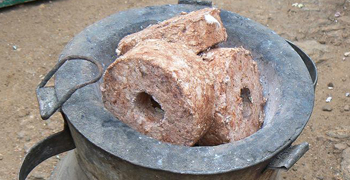COMMUNITY PROJECTS
Elephant Dung Paper Project
The elephant dung paper project was implemented as an incentive to generate additional revenue for the Mwaluganje community.
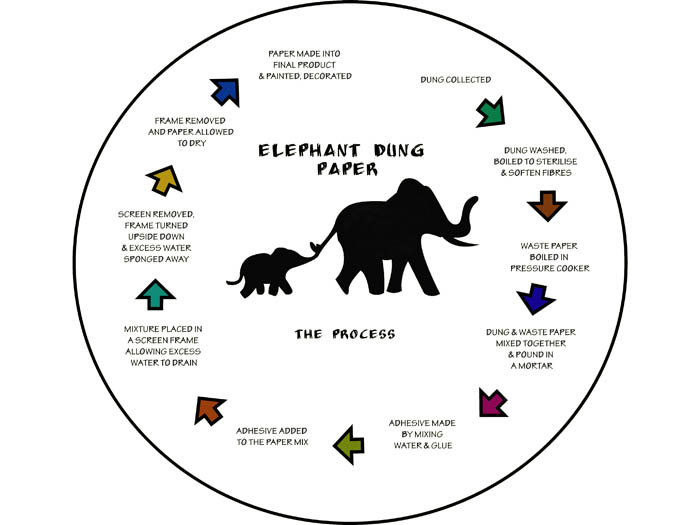
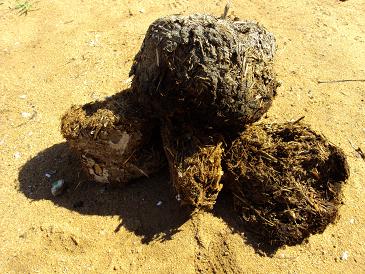 Three day old elephant dung is collected from the dirt roads of the Sanctuary and taken to the project site. Dung is not collected from the forest floor as it has been researched and discovered that elephant dung plays a vital role in plant diversity. Invertebrates, such as the dung beetle, are attracted to elephant dung and disperse it by travelling some distance by rolling it with their feet. Two beetles take it in turns to roll the dung; one rolling for a time while the second beetle hitches a ride on the side of the dung.
Three day old elephant dung is collected from the dirt roads of the Sanctuary and taken to the project site. Dung is not collected from the forest floor as it has been researched and discovered that elephant dung plays a vital role in plant diversity. Invertebrates, such as the dung beetle, are attracted to elephant dung and disperse it by travelling some distance by rolling it with their feet. Two beetles take it in turns to roll the dung; one rolling for a time while the second beetle hitches a ride on the side of the dung.
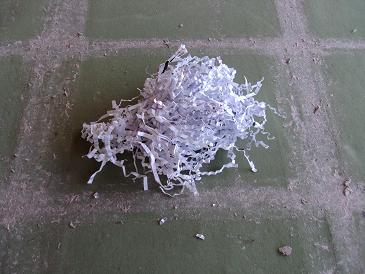 When the first worker tires, he takes his position on the side of the dung while his counterpart takes over rolling. It is a remarkable sight to see and a very common one in the Sanctuary. Once the beetles have reached their destination, they bury the dung which contains the seeds of numerous plants. By burying the dung, the beetles provide assistance in the germination process and refuge against seed predators such as rodents and other invertebrates.
When the first worker tires, he takes his position on the side of the dung while his counterpart takes over rolling. It is a remarkable sight to see and a very common one in the Sanctuary. Once the beetles have reached their destination, they bury the dung which contains the seeds of numerous plants. By burying the dung, the beetles provide assistance in the germination process and refuge against seed predators such as rodents and other invertebrates.
The dung is collected, boiled and pounded using a traditional mortar and pestle, and then waste paper is added and also pounded. The two materials are mixed in different ratios depending on the colour of the paper. The lighter the colour, the more recycled paper is used. When completely mixed, the mixture is placed in a basin of water, stirred, and scooped into a rectangular frame and dried on a table for three to six hours. The length of drying time is dependent on the weather conditions. The end product is cut to size depending on the intended use.
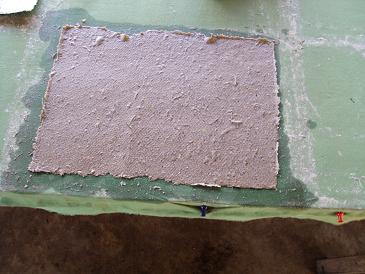
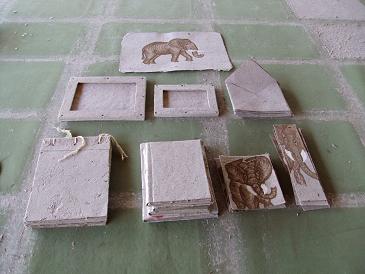
Solar Fence Project
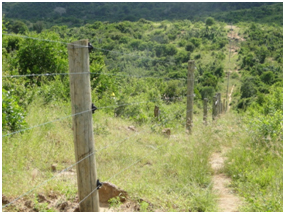 The solar fence covering 25.5 km plays a key role in containing the elephants. However, given that elephants are intelligent, resourceful and strong; they break through the fence often. Ongoing funding is required to adequately maintain the fence and protect the surrounding farms.
The solar fence covering 25.5 km plays a key role in containing the elephants. However, given that elephants are intelligent, resourceful and strong; they break through the fence often. Ongoing funding is required to adequately maintain the fence and protect the surrounding farms.
Fire Brickette Project
The Mwaluganje wildlife community use open cook pots to cook meals and often keep a fire burning throughout the day and night. Understandably, these pots use large amounts of firewood to keep them alight. In a recent study conducted by Oceans2Earth Foundation, it was revealed that community members regularly enter the Sanctuary and the surrounding forest to collect firewood to fuel these cook pots. Some community members even collect the firewood to sell as a source of income.
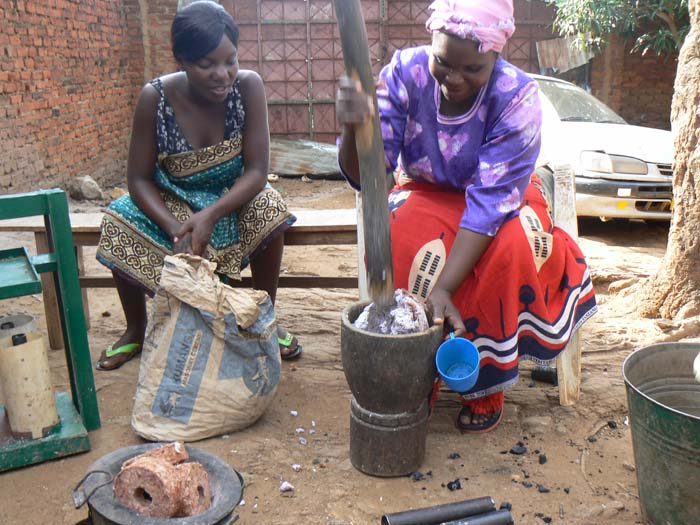
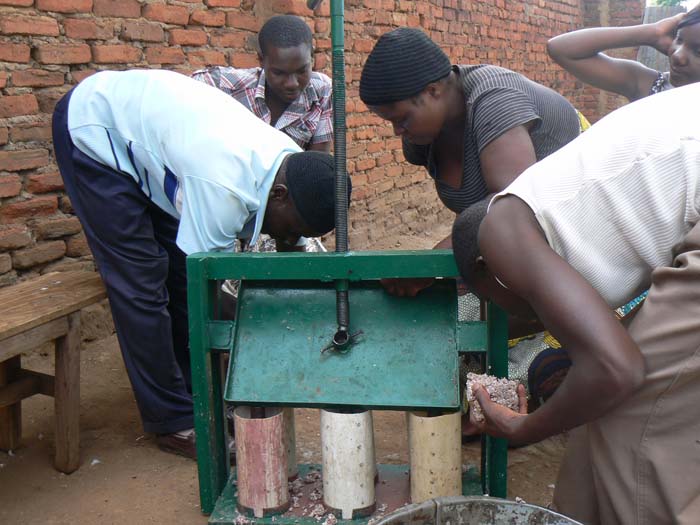 Collecting firewood in the Sanctuary can be life threatening and Mwaluganje residents have been killed in elephant attacks. The large bull elephant population is particularly aggressive and will challenge humans in their midst. In the mating season, this risk becomes even greater. Therefore, it is vitally important that the Mwaluganje Sanctuary community discover ways to leave the elephants undisturbed in their natural environment while the community is able to cook and maintain their fires.
Collecting firewood in the Sanctuary can be life threatening and Mwaluganje residents have been killed in elephant attacks. The large bull elephant population is particularly aggressive and will challenge humans in their midst. In the mating season, this risk becomes even greater. Therefore, it is vitally important that the Mwaluganje Sanctuary community discover ways to leave the elephants undisturbed in their natural environment while the community is able to cook and maintain their fires.
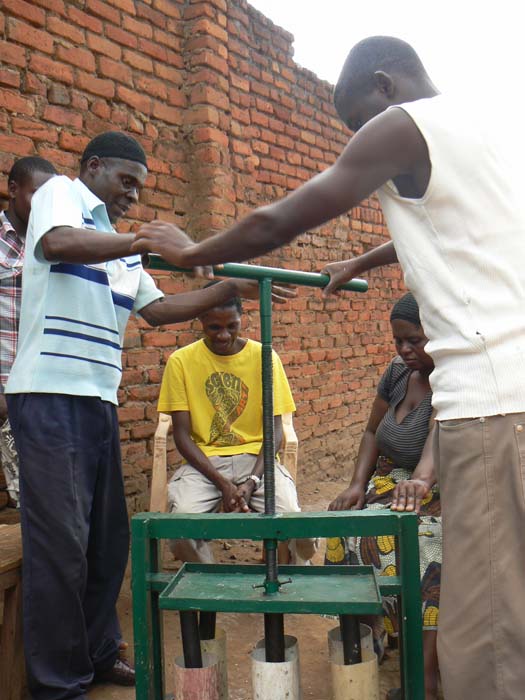 A fire brickette production project undertaken in Malawi in 2011 is thought to be a viable option for the Mwaluganje community. The project sources recycled paper and sawdust from local businesses and uses these materials to create bricks that are used to burn instead of firewood. The project aims to provide bricks to community members so there is no longer a need to enter the sanctuary for firewood.
A fire brickette production project undertaken in Malawi in 2011 is thought to be a viable option for the Mwaluganje community. The project sources recycled paper and sawdust from local businesses and uses these materials to create bricks that are used to burn instead of firewood. The project aims to provide bricks to community members so there is no longer a need to enter the sanctuary for firewood.
The Mwaluganje Sanctuary Board has accepted the project and plans to introduce this initiative to a youth group who will produce the fire brickettes. A network between the project in Mwaluganje and project participants in Malawi will be created so that everyone can share their ideas and experiences.
